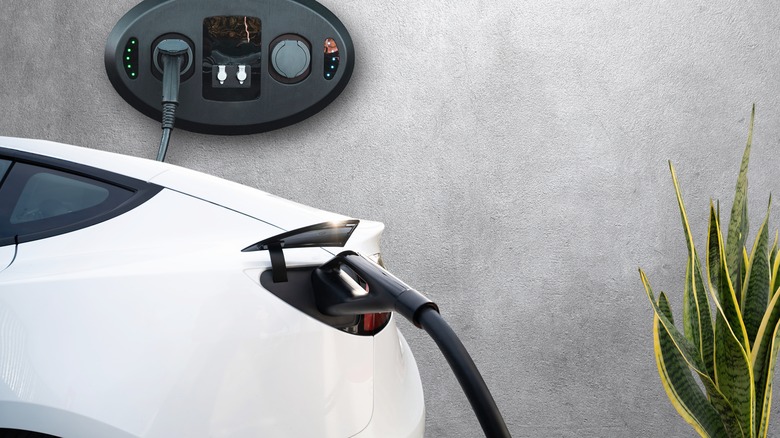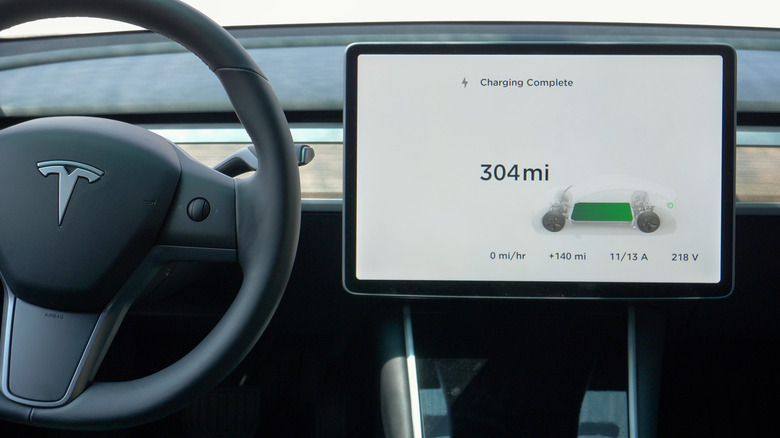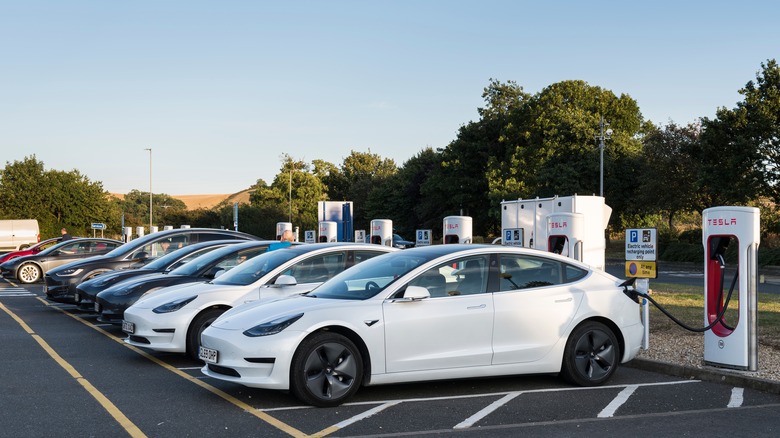Why You Shouldn't Charge Your Tesla To 100%, According To Elon Musk
If you drive a Tesla, you've probably wondered on multiple occasions how much you should charge your battery before a trip. The automatic reflex would likely be to charge the battery to 100% as much as you can. Why wouldn't you if the maximum battery charge is 100% and you want to get the longest range out of it?
It's not that simple, and you typically shouldn't charge your Tesla's battery to 100%. Technically, you can still charge your battery to its maximum, but Tesla doesn't recommend it unless you're planning a long trip. In fact, it's by design that most EV manufacturers don't even bother to tell you how long it will take to charge the battery to 100%. It's also the same reason that most fast chargers slow down after your EV battery is at 80% (via National Geographic). Want to know the reason why? Just ask Elon Musk.
Regenerative braking won't be effective if you charge to 100%
When someone on Twitter asked Elon Musk if it's okay to charge a Tesla to 100% every night, he replied "Charge to 90% to 95% and you'll be fine." Musk went on further to state the reason, "At 100% state of charge, regen braking doesn't work, because the battery is full, so car is less energy efficient."
To put it into context, Tesla vehicles use regenerative braking to convert kinetic energy into electrical power every time you engage the brake. According to Electrek, regenerative braking can recycle as much as approximately 30% of a Tesla's battery usage. However, if you charge your Tesla to 100%, the kinetic energy converted into electrical power will be wasted since it won't be stored in the battery. Regenerative braking is now a standard feature in all Tesla vehicles manufactured since 2020, but if your Tesla was made before 2020, you can choose between "Low" and "Standard" regenerative braking modes.
Charging to 100% could reduce the lifespan of your Tesla battery
In another tweet, someone asked Elon Musk, "What would be best for the battery long term.. 90%->40% charge daily, or 80%->30%?" Tesla's CEO answered, "80% to 30%." It confirms the general consensus that charging an EV battery to 100% could reduce its lifespan. This is because the battery pack in your Tesla is made of lithium-ion, just like smartphone batteries. From what we know about lithium-ion batteries, they degrade faster if you charge them to 100% — or if they deplete to zero. So it's no wonder most EV vehicles don't actually charge to 100% even if the computers tell you the battery's charge is at 100% (via The Globe and Mail).
According to a study done by the University of Michigan, you should also avoid leaving your charger connected to your EV after the battery is at 100%. This helps to prevent the battery from overheating, which could otherwise speed up its degradation. Fortunately, Tesla's onboard computer is designed to automatically deter the battery from overcharging.


